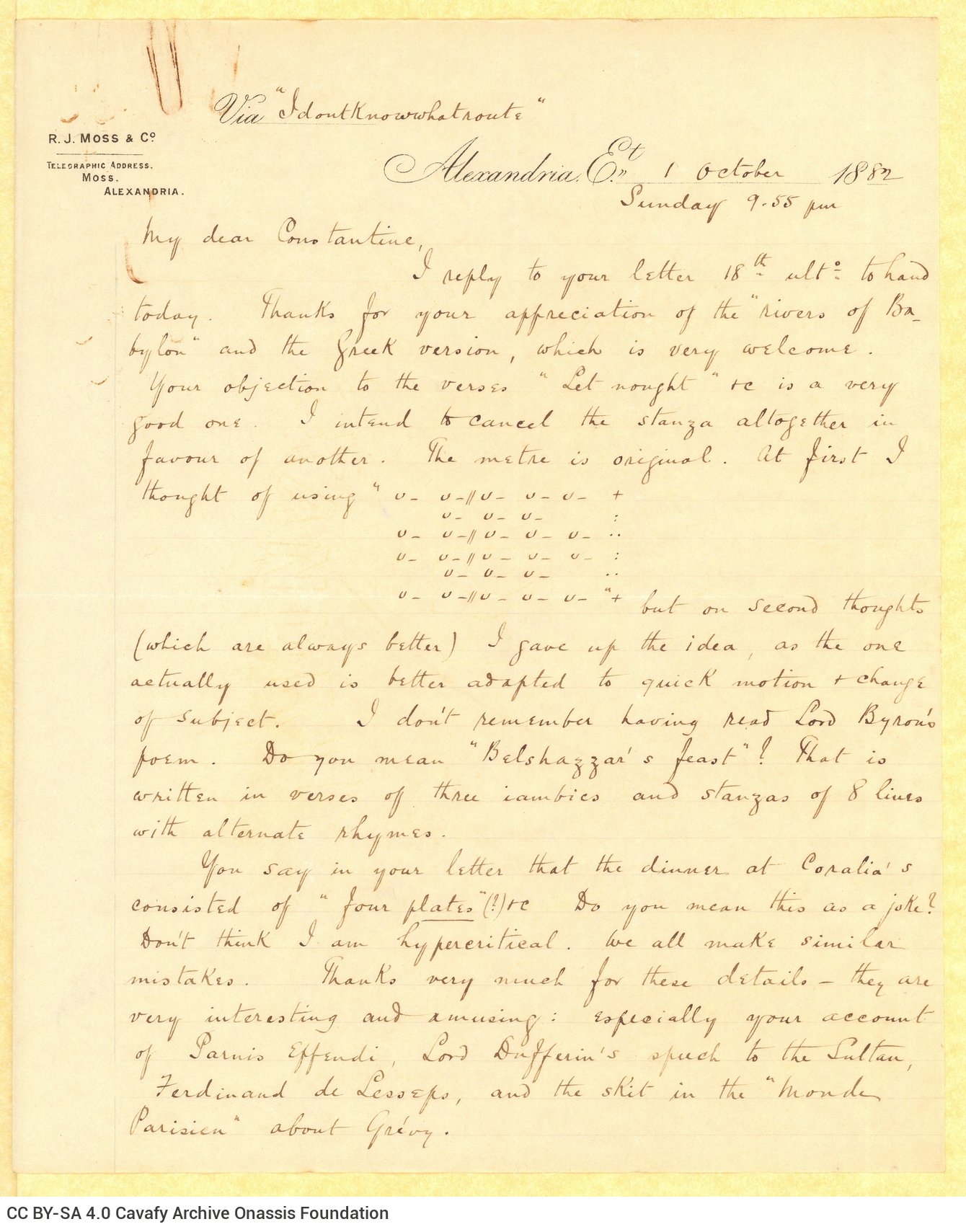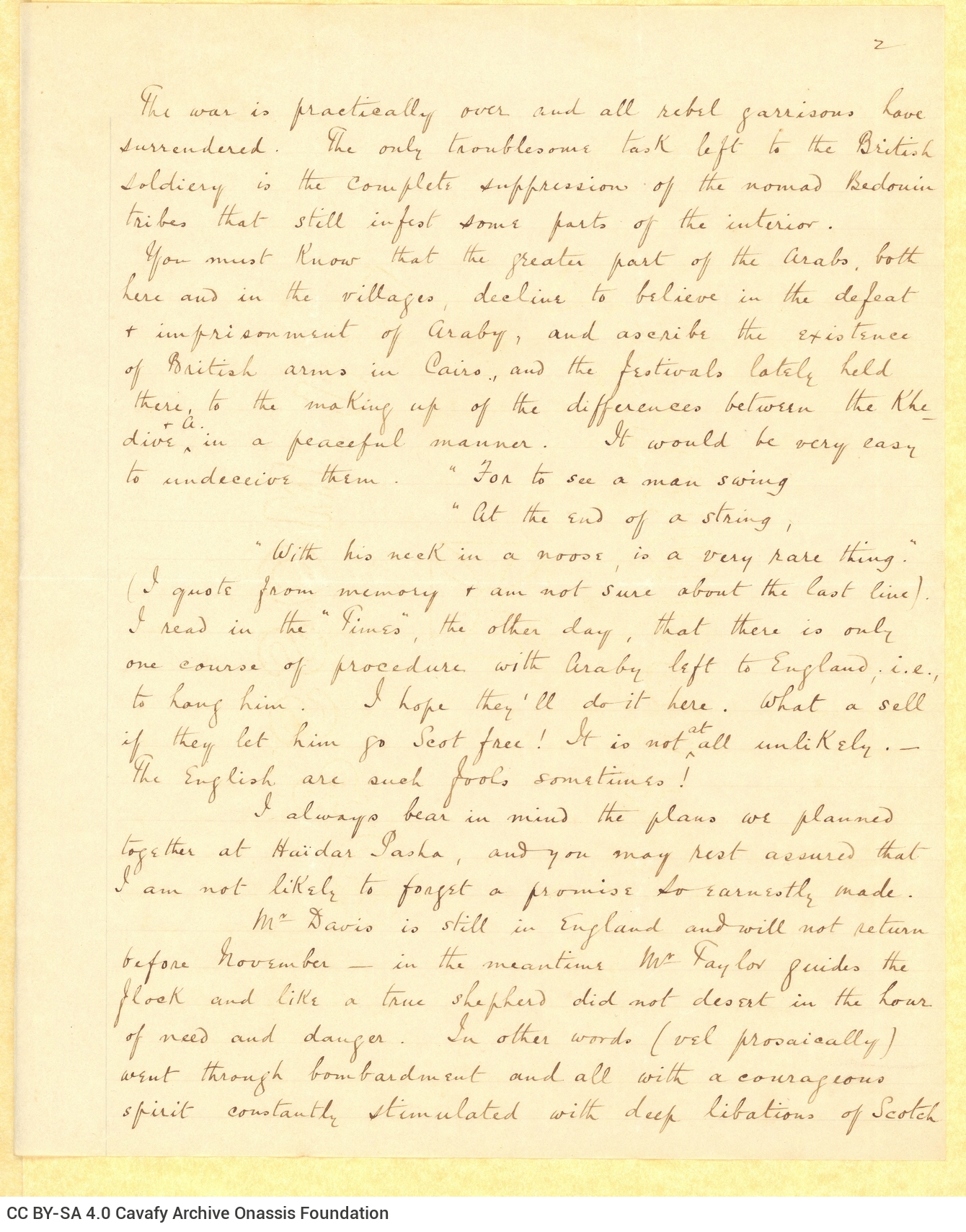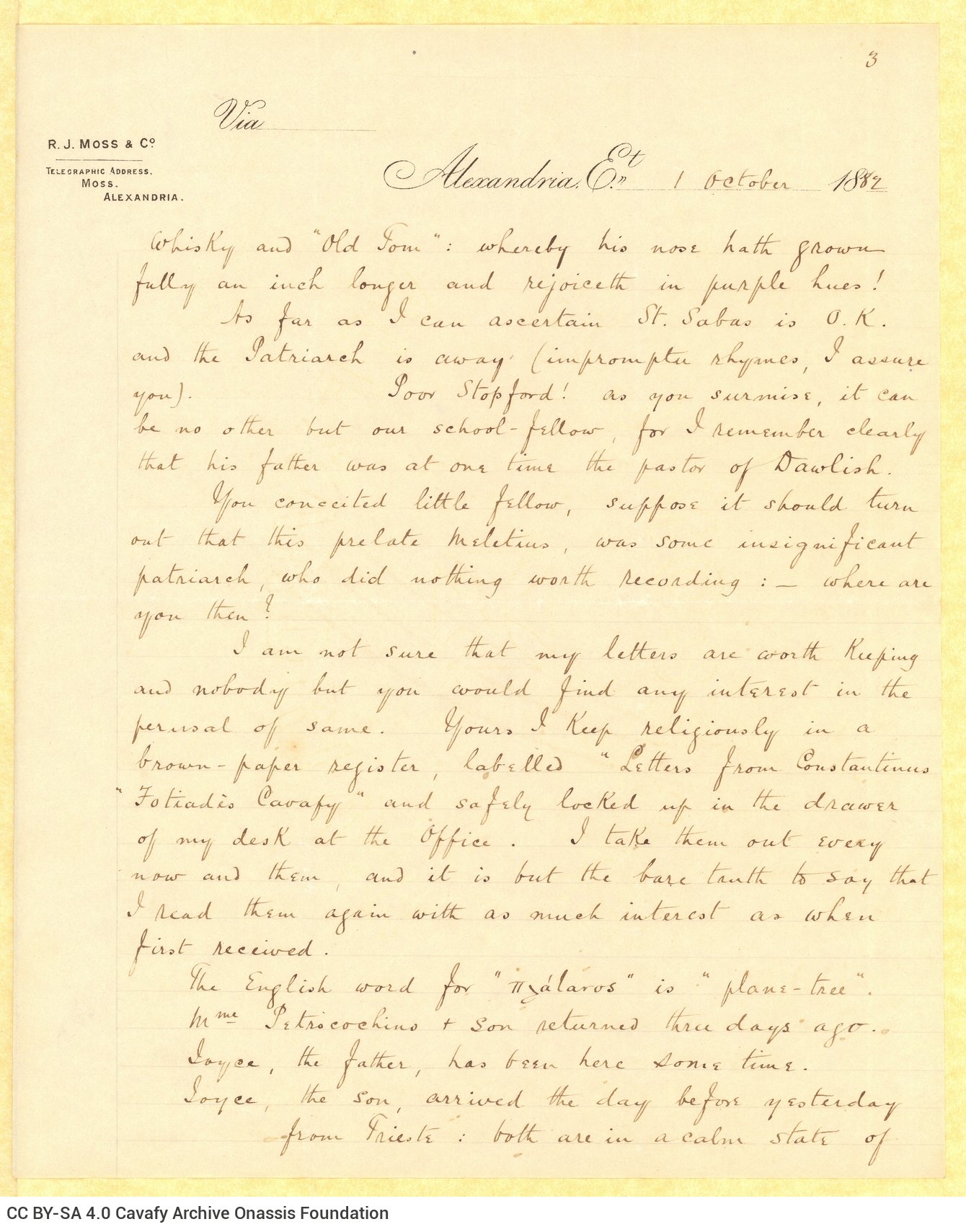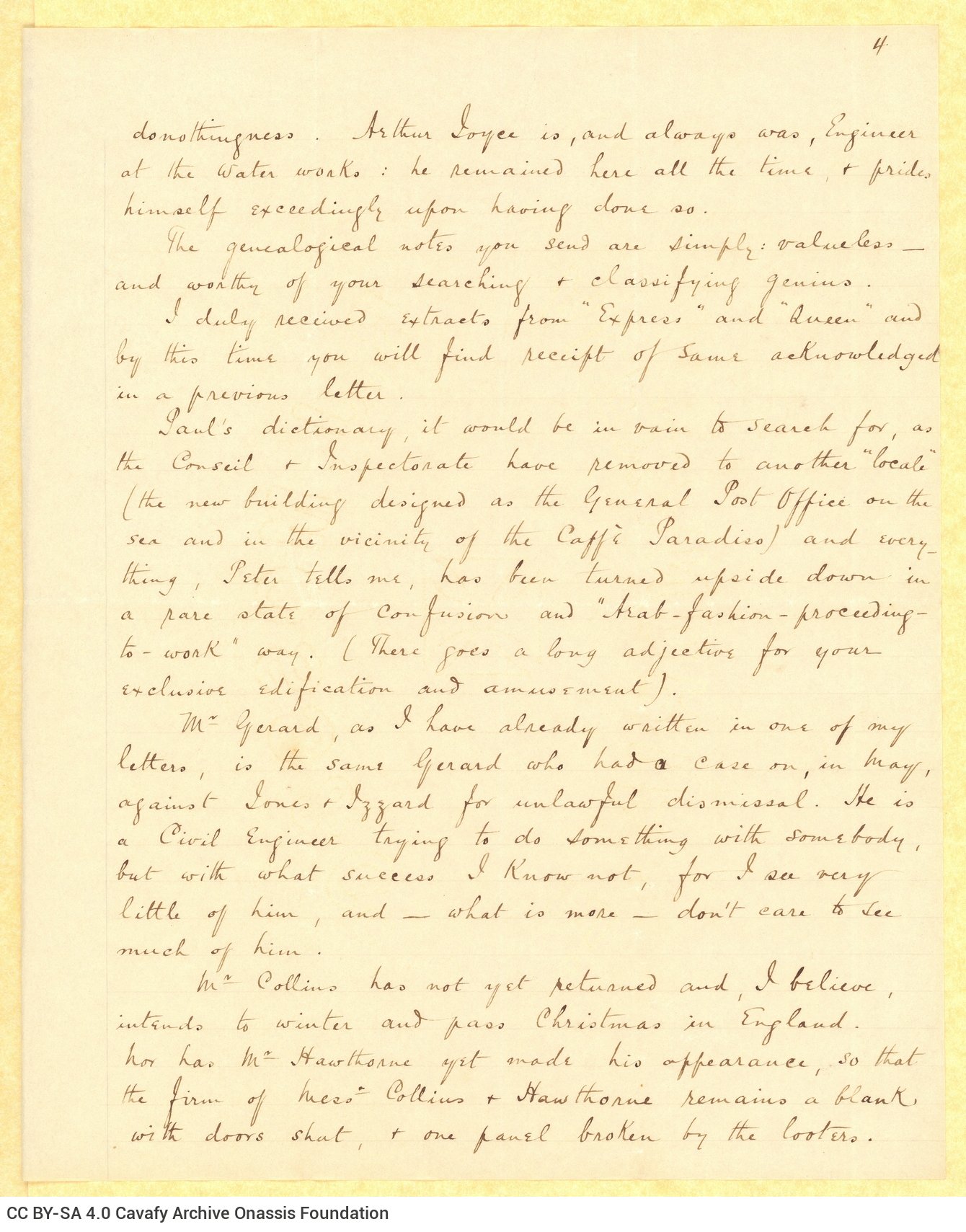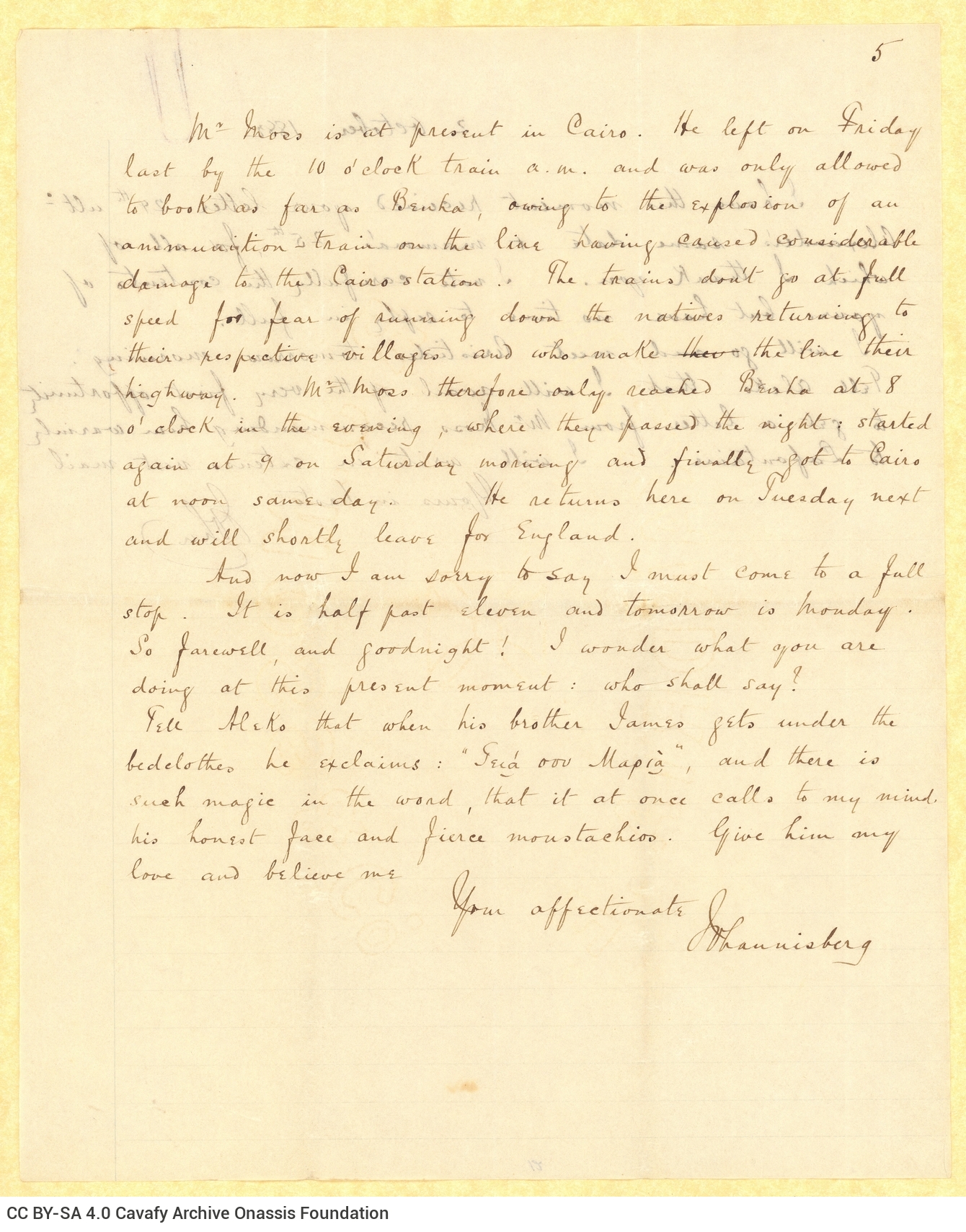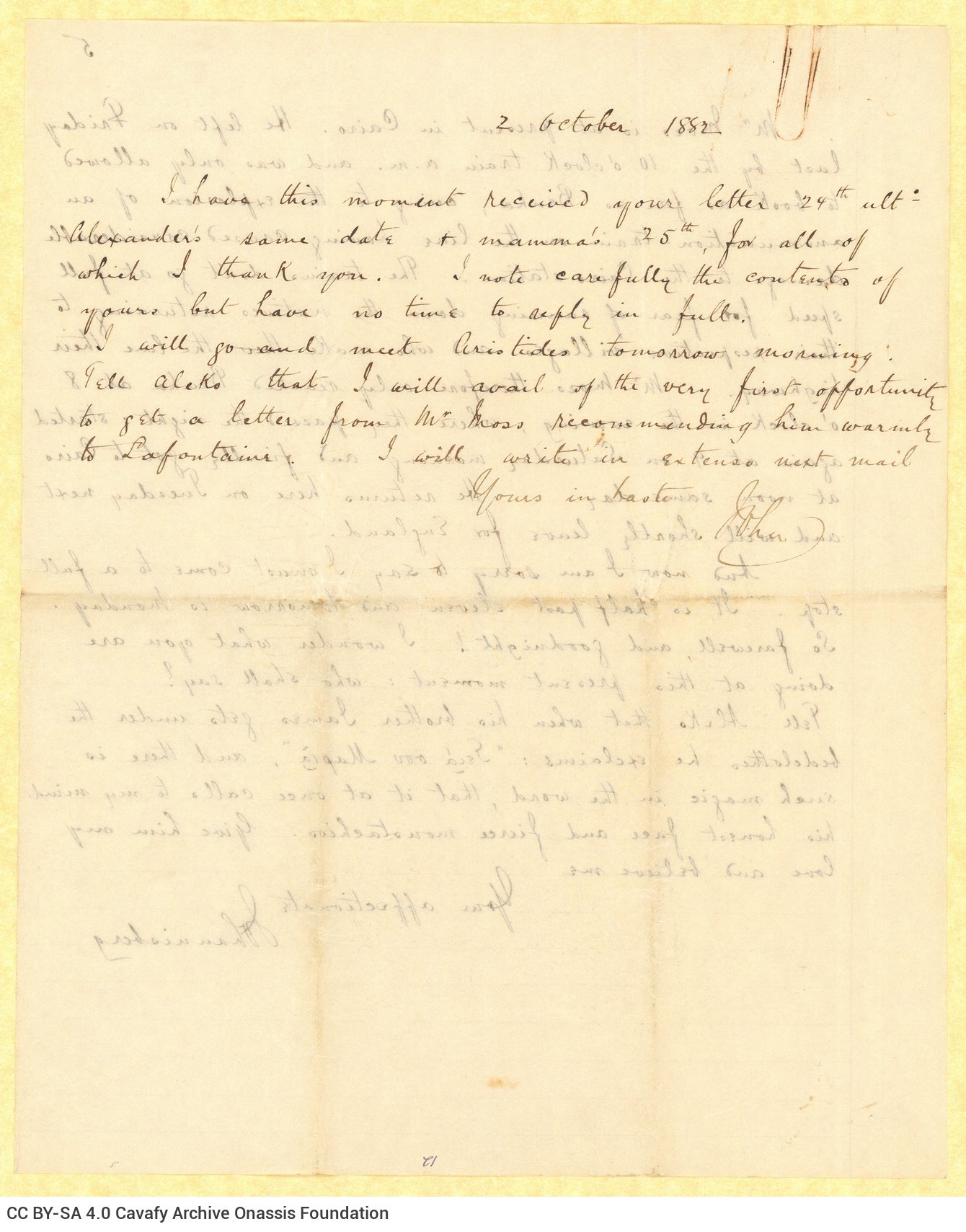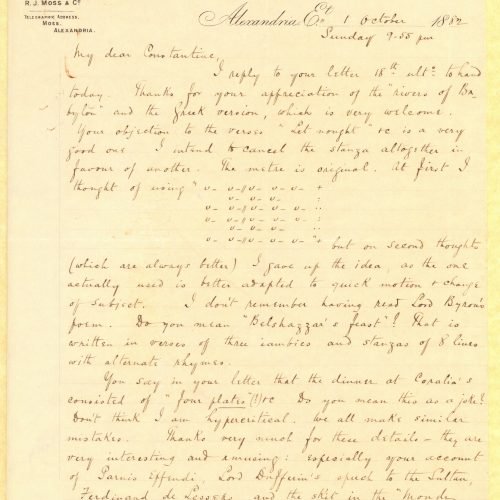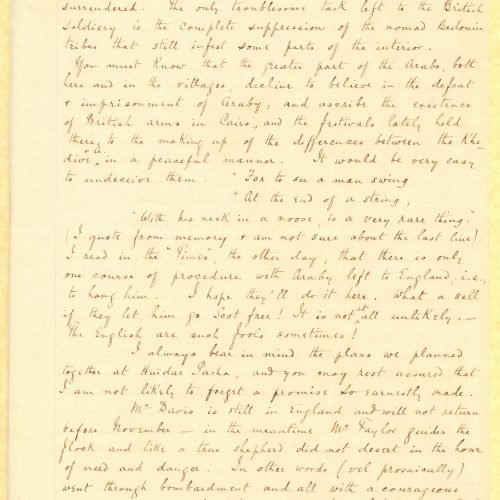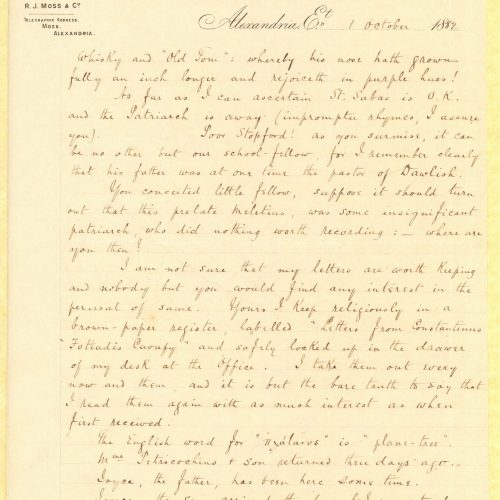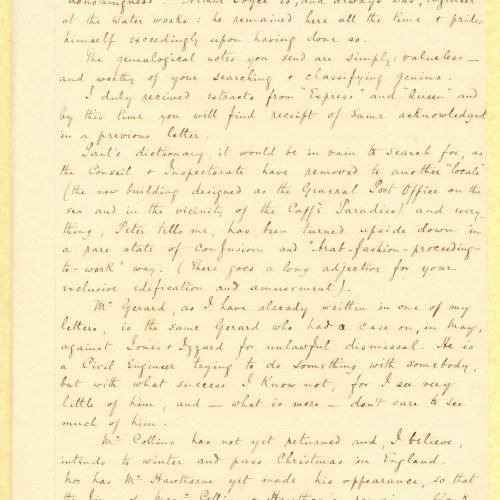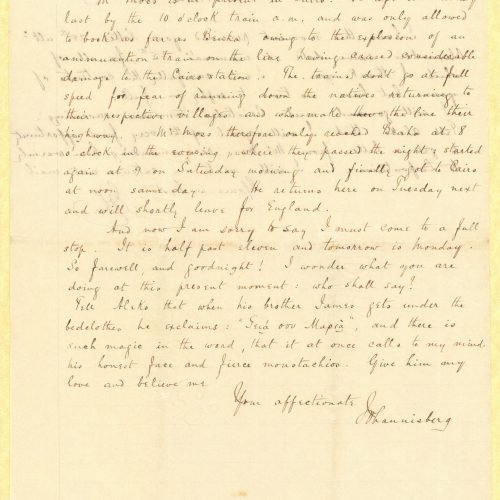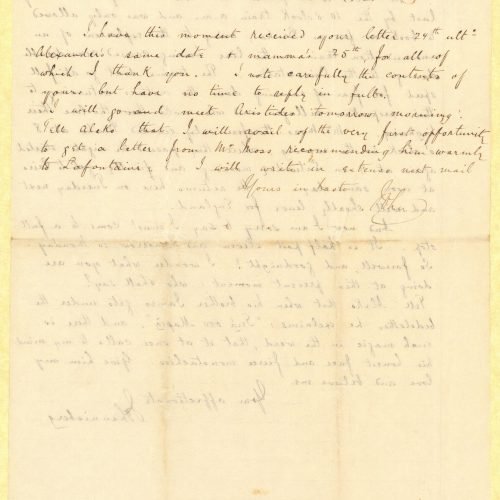υπογράμμιση
υπογράμμιση
πράσινη γραμματοσειρά
κίτρινη γραμματοσειρά
κόκκινη γραμματοσειρά
ΠΕΡΙΓΡΑΦΗ ΨΗΦΙΑΚΟΥ ΑΝΤΙΓΡΑΦΟΥ
ΠΕΔΙΟ ΑΝΑΓΝΩΡΙΣΗΣ
44 x 27 εκ.
ΠΕΔΙΟ ΠΛΑΙΣΙΟΥ ΠΑΡΑΓΩΓΗΣ
ΠΕΔΙΟ ΠΕΡΙΕΧΟΜΕΝΟΥ ΚΑΙ ΔΙΑΡΘΡΩΣΗΣ
Χειρόγραφη επιστολή του Τζων Καβάφη προς τον Κ. Π. Καβάφη, γραμμένη σε διάστημα δύο ημερών. Στην πρώτη και στην τρίτη σελίδα δύο τετρασέλιδων και στο recto φύλλου της εταιρείας R. J. Moss & Co., Alexandria, κείμενο επιστολής με ημερομηνία 1/10/1882. Οι σελίδες 2-5 αριθμημένες πάνω δεξιά. Σχόλια για ποίημα του Τζων, για την κατάσταση στην Αίγυπτο και την Αλεξάνδρεια. Πληροφορίες για πρόσωπα και πράγματα στην Αλεξάνδρεια. Στο verso του ίδιου φύλλου, συμπληρωματικό σημείωμα με ημερομηνία 2/10/1882.
ΠΕΔΙΟ ΟΡΩΝ ΠΡΟΣΒΑΣΗΣ ΚΑΙ ΧΡΗΣΗΣ
Αγγλική κυρίως
Γραφή με μελάνι. Φέρει δυσδιάκριτο υδατόσημο. Φθορά φυσικού τεκμηρίου: οξειδώσεις.
ΠΕΔΙΟ ΠΑΡΑΤΗΡΗΣΕΩΝ
Η επιμέλεια των μεταγραφών των επιστολών του Ιωάννη Κωνσταντίνου Καβάφη προς τον Κ. Π. Καβάφη πραγματοποιήθηκε για πρώτη φορά από την Κατερίνα Γκίκα και αναρτήθηκε στον επίσημο διαδικτυακό τόπο του Αρχείου Καβάφη.
Ο Τζων Καβάφης αναφέρεται στο ποίημά του «By the rivers of Babylon» και ενσωματώνει τις παρατηρήσεις του Κ. Π. Καβάφη. Ο τελευταίος φαίνεται να το απέδωσε στα ελληνικά.
ΣΗΜΕΙΑ ΠΡΟΣΒΑΣΗΣ
Καβάφης, Ιωάννης Κωνσταντίνος (John), «Επιστολή του John Καβάφη προς τον Κ. Π. Καβάφη» (01-02/10/1882), Επιστολή, Αρχείο Κ. Π. Καβάφη του Ιδρύματος Ωνάση, GR-OF CA CA-SF02-S01-SS02-F20-SF001-0005 (380), στο: Ψηφιακή Συλλογή του Αρχείου Καβάφη, επιμ. Ίδρυμα Ωνάση, Αθήνα, τελευταία ενημέρωση 01.10.2025: https://doi.org/10.26256/CA-SF02-S01-SS02-F20-SF001-0005.
